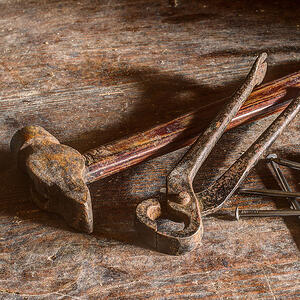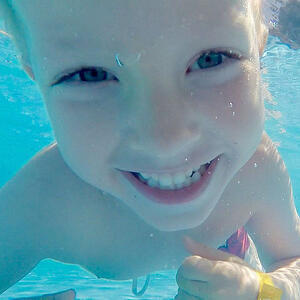
OUR TEETH CAN do a lot of things. They chew our food, they form a lot of the structure of our faces to make us look the way we do, they make it possible to speak clearly, and they’re the highlight of our smiles. These are good and healthy uses for teeth, but when we use them as tools for other jobs, we risk causing serious damage.
Teeth Are Not Substitute Nail Clippers or Scissors
The damage a nail-biting habit can do is a topic worthy of its own blog post, but we’ll summarize it here. Our fingernails are the least sanitary parts of our hands because the area underneath them is essentially impossible to keep clean. Germs love to grow there, and those same germs transfer to our mouths when we bite our nails. Nail-biting also puts a lot of unnecessary wear and tear on the front teeth and may even shift them out of place.
Nails aren’t the only things we might be tempted to bite through; sometimes it might seem very convenient to use our teeth to cut a piece of tape. Unlike chewing food, the sawing motion we do to cut tape involves a lot of grinding, which is bad for our teeth’s surfaces. Some people do this with much worse materials than tape, such as wire. Take the time to find the scissors or wire cutters instead of trying this!
Please Use an Actual Nutcracker
If you love eating walnuts, pecans, pistachios, or even half-popped popcorn kernels, don’t break them open with your teeth. Doing so is a great way to crack or chip a tooth, especially if that tooth has already undergone a dental procedure or if it has an untreated cavity. It’s much better to use a nutcracker.
Teeth Do Not Make Good Bottle Openers
Even though tooth enamel is the hardest substance in the human body, it’s far too brittle to be right for the job of popping a metal lid off a soda bottle. We could easily chip a tooth on that edge, and if we slip, that could mean a nasty gash to the lips or gums. No matter how cool you might think it will make you look to do it with your teeth, please use a real bottle opener.
Teeth Are Not a Third Hand
Sometimes when we’re in the middle of a busy task, we run out of hands to hold things, and it’s very easy to briefly stick a pencil, a few nails, or some sewing pins in our mouths for safekeeping.
Once again, the convenience isn’t worth the risks. Tripping or being hit with a sudden yawn, sneeze, cough, or hiccup could result in disaster. Even if nothing so dramatic happens, these objects can cause a lot of wear on teeth. For example, seamstresses have given themselves dents in their chewing surfaces from holding sewing pins in the same spot over and over.
Only Use Your Teeth for Their Intended Purposes!
Cracking and fracturing are the third-highest cause of tooth loss, and you can significantly reduce your risk of needing an emergency dental visit and a series of expensive procedures by only using your teeth for what they’re for. Don’t forget to keep up with twice-daily brushing, daily flossing, and regular dental visits!
We love seeing our patients use their teeth for smiles!






 Website Powered by Sesame 24-7™
Website Powered by Sesame 24-7™
